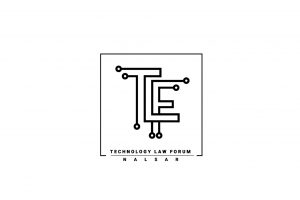About the Tech Law Forum @ NALSAR
The Tech Law Forum Blog is a branch of the TechLawForum, an initiative of the students of NALSAR University of Law. TLF is aimed at creating and promoting an environment of debate and discussion on issues related to Technology Law. The organization has shifted to a research-oriented outlook where members take on long term research programs in the field of tech law and comment on consultation papers by government bodies, among other activities. Additionally, TLF has worked with numerous distinguished people and organizations in the past.
About the Blog
The TLF Blog is now in its fifth year and having previously been cited by eminent institutions has been garnering increasing visibility year on year. Its most recent work includes publication of comments on the draft Personal Data Protection Bill, 2018 sent to the MeitY, a letter sent to MeitY regarding the banning of Chinese apps under Section 69A of the Information Technology Act, 2000 and articles by eminent activists like former Information Commissioner Mr. Shailesh Gandhi.
Additionally, due to its nature as a blog, TLF is more accessible to students and researchers than journals, which are often un-indexed and pay walled. Further, it covers a niche, specialized domain (technology and law) which is only going to become more popular and important in the coming years. Among the blog’s recent initiatives is a fortnightly newsletter, which is compiled by a dedicated team of reporters working with the blog. The blog is currently staffed by seven editors selected through a test open to all students of NALSAR; you can learn more about our editors here.
We are pleased to announce that the blog is now accepting original submissions from students, practitioners and academicians on a rolling basis. If you are interested in the field of Tech Law and have an opinion or an idea that you would like to put out, this Blog is the platform for you.
Suggested Topics
Authors may choose to write on specific aspects of the following broad themes:
- Intermediary Liability
- Data Protection
- Algorithmic Decision Making
- Regulation of Cryptocurrencies
- Content Moderation and Online Freedom of Expression
- Increasing Digital Literacy
- Digital Intellectual Property
- Cyber Crimes
- Competition Law in Online Market Structures
Please note that these are mere suggestions, and authors need not restrict themselves to these themes as long as their topic is within the aforementioned scope of the TLF blog. Authors are encouraged to write to us in case of questions pertaining to whether a proposed topic is within the scope of the blog’s themes.
Submission Guidelines
- a) The topic should be within the scope of the blog, i.e. related to technology and law. For reference, please check out the blog. A topic recently in the news is preferred. As mentioned before, if you’re unsure about your topic, do write to us seeking a clarification regarding the same.
- b) The post should preferably make an argument or assertion substantiated by facts. Language need not be strictly academic (in the manner of a research paper), but it should be formal.
- c) There is no strict word limit, however we prefer posts of around 1200-1500 words. We strongly recommend that longer posts be split into multiple parts, for better readability.
- d) Usage of hyperlinks as compared to citations is encouraged.
- e) There is no limit to the number of posts that can be submitted.
Please email your posts to techlawforum@nalsar.ac.in with the subject: “Submission for TLF Blog”. The submissions will be subjected to an editorial review usually spanning a period of 14 days, subsequent to which a decision on publication will be made and conveyed to the authors.
Contact Details
Feel free to write to us at techlawforum@nalsar.ac.in with any queries, doubts and clarifications. You can also join our group on Facebook and engage in discussions, and follow us on Instagram, Twitter and LinkedIn.
The Blog can be accessed here.”

